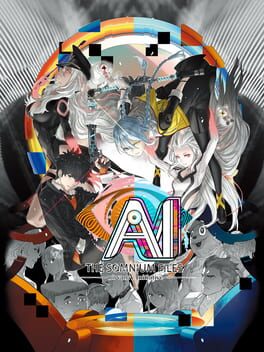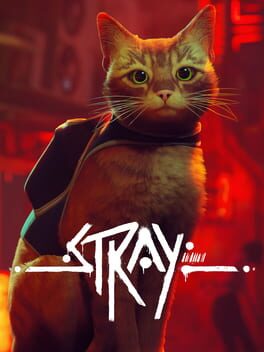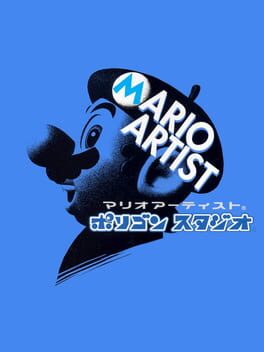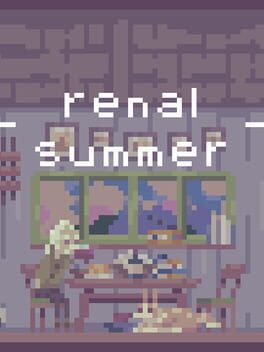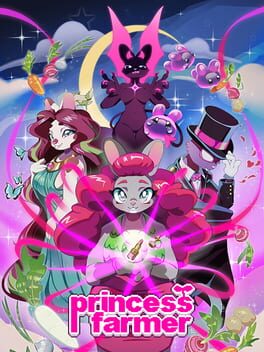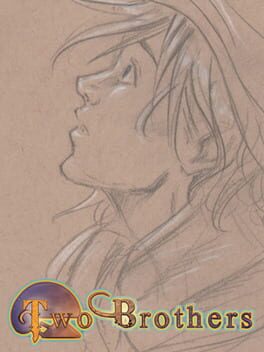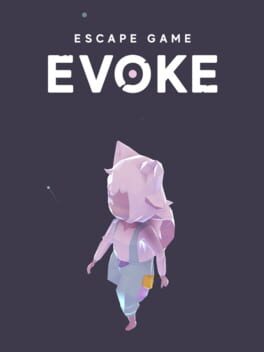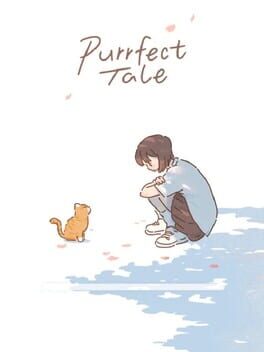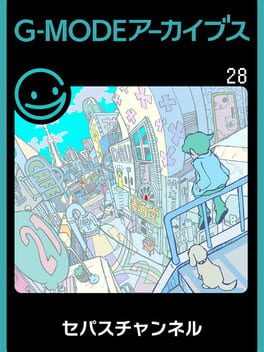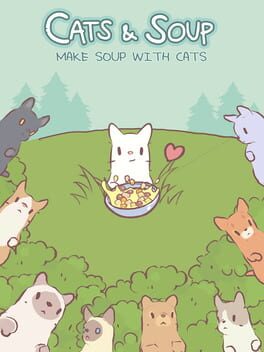oolongstains
I'm an Andes Komeji stan now.
Really, really liked this. I appreciate how much time the cast gets to breathe, how much I get to appreciate and care about everyone. The mystery plotting was just as interesting as the last game; played this with Jessica and Aura around, so we got to keep sharing our theories the whole time. I was a bit disappointed first at the more linear story structure, but it all clicked why it was that way late in the game - and that twist was fantastic.
PC release is a lot more stable than the original game.
Really, really liked this. I appreciate how much time the cast gets to breathe, how much I get to appreciate and care about everyone. The mystery plotting was just as interesting as the last game; played this with Jessica and Aura around, so we got to keep sharing our theories the whole time. I was a bit disappointed first at the more linear story structure, but it all clicked why it was that way late in the game - and that twist was fantastic.
PC release is a lot more stable than the original game.
2022
What happened here?
The opening and first area gave a really positive impression. There's a lot of room to navigate the city in a catty way, climbing around on surfaces, scratching things, slipping through someone's legs when they're not paying attention to sneak into a building. For a bit, it seems like they really are interested in the questions about "what does it mean for a cat to navigate this world, how would they experience it".
After a certain point it feels like they've run out of ideas, and what they fall back on is the most boring gameplay tropes imaginable. One scene has you activating a loud elevator that slowly descends while you dodge zombies, like any 2006-era action game for the 360. In another you avoid flashlight beams in the most boring, by-the-numbers stealth sequence, with drones ready to shoot your little cat dead. They don't give you any sense of real tension, any narrative reasons to care about them, they're just boring and embarassing filler. Worse, they don't make any use at all of your being a cat. They seem to have forgotten to consider that maybe a cat might have different ways of moving through the world like in the open world sections. You could have made these exact scenes with a generic human and wouldn't have to change a single thing. I might have felt better about them if they didn't make up at least 75% of the game.
The story emphasizes that this isn't a story about a cat at all. The robot doesn't get the focus just because he can speak, but because they don't seem to have thought about the cat as being capable of having real emotions or motivations. The cat doesn't seem to want to go anywhere, doesn't seem to want to do anything. Aside from a couple of scenes where they're briefly injured, and one of the final scenes, the game doesn't really care about presenting the cat's emotional state at all. The developers don't seem to have had any confidence in their ability to tell a story about someone who's not human and how they experience the world, so they didn't even try. What they did make is as clichéd as I could imagine, and every single twist and attempt at an emotional moment is predictable and weakly told.
I felt a little better about the game before the final action scenes, which are so frustrating and so badly matched to the rest of the game that I just wanted it to be over.
The opening and first area gave a really positive impression. There's a lot of room to navigate the city in a catty way, climbing around on surfaces, scratching things, slipping through someone's legs when they're not paying attention to sneak into a building. For a bit, it seems like they really are interested in the questions about "what does it mean for a cat to navigate this world, how would they experience it".
After a certain point it feels like they've run out of ideas, and what they fall back on is the most boring gameplay tropes imaginable. One scene has you activating a loud elevator that slowly descends while you dodge zombies, like any 2006-era action game for the 360. In another you avoid flashlight beams in the most boring, by-the-numbers stealth sequence, with drones ready to shoot your little cat dead. They don't give you any sense of real tension, any narrative reasons to care about them, they're just boring and embarassing filler. Worse, they don't make any use at all of your being a cat. They seem to have forgotten to consider that maybe a cat might have different ways of moving through the world like in the open world sections. You could have made these exact scenes with a generic human and wouldn't have to change a single thing. I might have felt better about them if they didn't make up at least 75% of the game.
The story emphasizes that this isn't a story about a cat at all. The robot doesn't get the focus just because he can speak, but because they don't seem to have thought about the cat as being capable of having real emotions or motivations. The cat doesn't seem to want to go anywhere, doesn't seem to want to do anything. Aside from a couple of scenes where they're briefly injured, and one of the final scenes, the game doesn't really care about presenting the cat's emotional state at all. The developers don't seem to have had any confidence in their ability to tell a story about someone who's not human and how they experience the world, so they didn't even try. What they did make is as clichéd as I could imagine, and every single twist and attempt at an emotional moment is predictable and weakly told.
I felt a little better about the game before the final action scenes, which are so frustrating and so badly matched to the rest of the game that I just wanted it to be over.
Some of the most Uchikoshi-ass Uchikoshi here. The kind of game where you just want to keep notes the whole way through to keep track of your theories and waht you've figured out.
Compared to AI, the characterization feels a bit weak. Maybe it's the escape game format that means that no one has a chance to really develop as a character outside the core events. The actual mystery plotting is satisfyingly tight though.
I can't even imagine playing this on any platform that's not a DS. The end game twist depends on it.
Compared to AI, the characterization feels a bit weak. Maybe it's the escape game format that means that no one has a chance to really develop as a character outside the core events. The actual mystery plotting is satisfyingly tight though.
I can't even imagine playing this on any platform that's not a DS. The end game twist depends on it.
2022
2020
This game is fascinating.
The adoption of mobile game mechanics is really smart. In many games, details such as the time nudges, the requirement to log in regularly multiple times a day, and so on are designed to extract more money from the player. Renal Summer doesn't have microtransactions beyond a single "remove ads" payments, so it's able to use those same mechanics in very different ways. Over the seven days of the story, I felt compelled to check in on the dog to help them as much as I could. As soon as I realized their strength was fading, and I'd have to help more often to keep them able to live their normal life, it felt important for me to check in regularly even before the regular notification nags.
In general, the sad theme comes across as convincingly non-manipulative. It's very, very easy for a game about death to come across as either cloying or emotionally manipulative, but Renal Summer manages to be moving without being mawkish.
The retro aesthetic is a smart choice since it makes you expect something much more "gamey" than it actually is. There's a fascinating contrast between the game field, the very gamey playfield the player can actually interact with, and the naturalistic movements in the world outside which the player can only watch. The lifelike, smooth movement of the animation reminds me a lot of Ghost Trick; adopting the aesthetics of pixel art, but moving in a natural-feeling way that's only possible if the player isn't directly controlling any of the living characters.
The real-time nature of the storytelling is incredibly well-produced. Every little scene you witness feels realistic and honest, and the full 24-hour daily schedule the dog and the old man go through is incredibly detailed.
The adoption of mobile game mechanics is really smart. In many games, details such as the time nudges, the requirement to log in regularly multiple times a day, and so on are designed to extract more money from the player. Renal Summer doesn't have microtransactions beyond a single "remove ads" payments, so it's able to use those same mechanics in very different ways. Over the seven days of the story, I felt compelled to check in on the dog to help them as much as I could. As soon as I realized their strength was fading, and I'd have to help more often to keep them able to live their normal life, it felt important for me to check in regularly even before the regular notification nags.
In general, the sad theme comes across as convincingly non-manipulative. It's very, very easy for a game about death to come across as either cloying or emotionally manipulative, but Renal Summer manages to be moving without being mawkish.
The retro aesthetic is a smart choice since it makes you expect something much more "gamey" than it actually is. There's a fascinating contrast between the game field, the very gamey playfield the player can actually interact with, and the naturalistic movements in the world outside which the player can only watch. The lifelike, smooth movement of the animation reminds me a lot of Ghost Trick; adopting the aesthetics of pixel art, but moving in a natural-feeling way that's only possible if the player isn't directly controlling any of the living characters.
The real-time nature of the storytelling is incredibly well-produced. Every little scene you witness feels realistic and honest, and the full 24-hour daily schedule the dog and the old man go through is incredibly detailed.
2022
A vacation in video game form. Had just a great time the whole way through. The choice to give you different styles of gameplay to pick from instead of difficulty levels is really smart, and a great way to get at different ways players would want to engage with it. I switched it up a few times over the course of the game depending on my mood.
The plot isn't anything especially deep, but it doesn't feel like it needs to be either. It's a monster-of-a-week magical girl episode with some fun drama and a satisfying conclusion. It was just what it needed to be. The runtime is pretty short but feels like it's just right. Not too short, not too long.
Doesn't affect my score, but I played this on Switch and ran into some technical issues that made me wish I'd bought it on PC instead. Not gamebreaking, but disruptive. In particular,
The scaling in handheld mode is handled wrong, leading to a distracting "shimmery" effect when scrolling and some awkward-looking dithering. I meant to play handheld but ultimately felt like it didn't work well enough to be worth putting up with it.
There's some nasty slowdown when playing missions with a CPU-controlled ally, sometimes bad enough it really affects gameplay.
The plot isn't anything especially deep, but it doesn't feel like it needs to be either. It's a monster-of-a-week magical girl episode with some fun drama and a satisfying conclusion. It was just what it needed to be. The runtime is pretty short but feels like it's just right. Not too short, not too long.
Doesn't affect my score, but I played this on Switch and ran into some technical issues that made me wish I'd bought it on PC instead. Not gamebreaking, but disruptive. In particular,
The scaling in handheld mode is handled wrong, leading to a distracting "shimmery" effect when scrolling and some awkward-looking dithering. I meant to play handheld but ultimately felt like it didn't work well enough to be worth putting up with it.
There's some nasty slowdown when playing missions with a CPU-controlled ally, sometimes bad enough it really affects gameplay.
2013
I feel like I'm usually pretty patient, but man. This is easily one of the worst games I've ever played.
Lots of enthusiasm, very little understanding of what makes a game tick.
It's very excited about making you read lots of very poor, florid writing. Your wife gets referred to as your "loving wife" 12 times before she's killed in a scripted encounter 2 minutes into the game.
You switch resolutions by typing "1" through "9" on your keyboard, and any option you pick makes the window disappear permanently. You enable gamepad controls by hitting the "3" key on your keyboard in the options menu. Stepping into most walls gets you stuck or lets you clip through.
The map design is slapdash in a way a lot of amateur map design is, with wide open spaces and escher-like mashing up of verticality into flat spaces. In a Yume Nikki-like game this could work really well, but this game doesn't seem aware that its map design is weird, or that its "bad" properties could make it interesting.
Lots of enthusiasm, very little understanding of what makes a game tick.
It's very excited about making you read lots of very poor, florid writing. Your wife gets referred to as your "loving wife" 12 times before she's killed in a scripted encounter 2 minutes into the game.
You switch resolutions by typing "1" through "9" on your keyboard, and any option you pick makes the window disappear permanently. You enable gamepad controls by hitting the "3" key on your keyboard in the options menu. Stepping into most walls gets you stuck or lets you clip through.
The map design is slapdash in a way a lot of amateur map design is, with wide open spaces and escher-like mashing up of verticality into flat spaces. In a Yume Nikki-like game this could work really well, but this game doesn't seem aware that its map design is weird, or that its "bad" properties could make it interesting.
2022
2021
Pretty good interactive comic paired with a pretty mediocre pet game.
The comic part is surprisingly good. It's nothing deep but it's a lot better written than most gacha game plots, with a genuinely really engaging slice-of-life plot. The interactive parts are simple but genuinely do a good job of building immersion, even when it's as simple as controlling the protagonist's footsteps while she's walking during a conversation.
The cat raising minigame is... not so great. It's got no real depth at all, it's just a timesink and a place for you to spend in-game currency. Playing with your pets and feeding pets is purely about earning game currency, there's no real sense that you're actually doing anything with the cats. Feels like it's only there as a way to keep people logging in every day, not because it's meant to be fun.
Three star interactive comic with -1 stars' worth of ads.
The comic part is surprisingly good. It's nothing deep but it's a lot better written than most gacha game plots, with a genuinely really engaging slice-of-life plot. The interactive parts are simple but genuinely do a good job of building immersion, even when it's as simple as controlling the protagonist's footsteps while she's walking during a conversation.
The cat raising minigame is... not so great. It's got no real depth at all, it's just a timesink and a place for you to spend in-game currency. Playing with your pets and feeding pets is purely about earning game currency, there's no real sense that you're actually doing anything with the cats. Feels like it's only there as a way to keep people logging in every day, not because it's meant to be fun.
Three star interactive comic with -1 stars' worth of ads.
2008
Wow. What a game. As you can probably tell from how I'm writing this so long after my playthrough, it's stuck in my head.
In the west this gets compared to Mother/Earthbound a lot, but this is a game about individual characters and their very personal struggles that leads to a very different kind of storytelling than Mother goes for. The focus is less on the events, less on an epic world-scale story, and more about the very specific personal journeys of the protagonists.
I think Boy's existential struggle for "what does it mean to find your place in the world" is a pretty common feeling, but it's expressed with a depth and conviction that really comes through. His parasocial relationship with Sebastian is interesting to reevaluate in the era of streamers and "accessible" modern celebrities. It pairs interestingly with Sebastian's nervousness about taking responsibility for his own art, his ambivalence as to whether anything he says matters.
Bonnie's arc is maybe the most nuanced and interesting, not only her struggles with her own art and what it means to expect something from an audience when she shares it, but also her struggles with how and whether to live in the future.
It's impressive how smart the map design is. This is a feature phone game - it couldn't have had more than 512KB of storage. The very clever reuse of maps, having characters retread their journeys frequently, is a smart way of making the most of what they have. Instead of feeling repetitive, it encourages you to develop a very close, personal relationship with the city.
I dearly hope this gets a translation of some kind someday. I want more people to be able to experience it.
In the west this gets compared to Mother/Earthbound a lot, but this is a game about individual characters and their very personal struggles that leads to a very different kind of storytelling than Mother goes for. The focus is less on the events, less on an epic world-scale story, and more about the very specific personal journeys of the protagonists.
I think Boy's existential struggle for "what does it mean to find your place in the world" is a pretty common feeling, but it's expressed with a depth and conviction that really comes through. His parasocial relationship with Sebastian is interesting to reevaluate in the era of streamers and "accessible" modern celebrities. It pairs interestingly with Sebastian's nervousness about taking responsibility for his own art, his ambivalence as to whether anything he says matters.
Bonnie's arc is maybe the most nuanced and interesting, not only her struggles with her own art and what it means to expect something from an audience when she shares it, but also her struggles with how and whether to live in the future.
It's impressive how smart the map design is. This is a feature phone game - it couldn't have had more than 512KB of storage. The very clever reuse of maps, having characters retread their journeys frequently, is a smart way of making the most of what they have. Instead of feeling repetitive, it encourages you to develop a very close, personal relationship with the city.
I dearly hope this gets a translation of some kind someday. I want more people to be able to experience it.
2020
This review contains spoilers
I'm really torn on Omori. For context, I played the "good ending" route without the bonus Basil scene.
I don't mind messy RPG Maker games - in fact I love a lot of them - but parts of Omori are messy in ways that aren't interesting. The early game especially tends towards weak map design and merely "okay" cute wacky story sequences that didn't really pull me in.
There's an interesting tension in the fantasy world sequences about how invested you can really get in what you know isn't real, about these characters you know are fake in the game's own fiction - but that tension doesn't really hold for ~10-15 hours of gameplay.
Up until the last few hours I thought it was okay, if not great. The late-game twist feels, honestly, incredibly unearned and mawkish. It feels timed and written to prioritize shocking the player and making the player feel sad over accomplishing its narrative and thematic goals. I see a lot of players making memes about how sad the game made them, so I guess it worked for some people, but it just didn't land right for me.
According to the wiki, there's internal text for the "Truth" photo album that tells the story of Mari's death in lurid detail. It feels intended specifically for wiki dataminers who need every detail, and, honestly, those details are better left untold. The scene's more effective by being told vaguely and leaving the player room to interpret; leaving it carefully written out frankly takes away from it. Worse, it makes players start thinking about whether it's even possible for it to have happened, and at the point players are thinking about "could this even work" you've lost the mindset you need for this kind of horror to work.
For the same reasons, I ended up finding Basil a more interesting and nuanced character. You're not given as much detail about what happened with him, or how to think about him, and it leaves a lot more room to think about it.
A version of Omori that's about 10 hours shorter and less focused on "making players sad" would be a lot more interesting.
I don't mind messy RPG Maker games - in fact I love a lot of them - but parts of Omori are messy in ways that aren't interesting. The early game especially tends towards weak map design and merely "okay" cute wacky story sequences that didn't really pull me in.
There's an interesting tension in the fantasy world sequences about how invested you can really get in what you know isn't real, about these characters you know are fake in the game's own fiction - but that tension doesn't really hold for ~10-15 hours of gameplay.
Up until the last few hours I thought it was okay, if not great. The late-game twist feels, honestly, incredibly unearned and mawkish. It feels timed and written to prioritize shocking the player and making the player feel sad over accomplishing its narrative and thematic goals. I see a lot of players making memes about how sad the game made them, so I guess it worked for some people, but it just didn't land right for me.
According to the wiki, there's internal text for the "Truth" photo album that tells the story of Mari's death in lurid detail. It feels intended specifically for wiki dataminers who need every detail, and, honestly, those details are better left untold. The scene's more effective by being told vaguely and leaving the player room to interpret; leaving it carefully written out frankly takes away from it. Worse, it makes players start thinking about whether it's even possible for it to have happened, and at the point players are thinking about "could this even work" you've lost the mindset you need for this kind of horror to work.
For the same reasons, I ended up finding Basil a more interesting and nuanced character. You're not given as much detail about what happened with him, or how to think about him, and it leaves a lot more room to think about it.
A version of Omori that's about 10 hours shorter and less focused on "making players sad" would be a lot more interesting.
2021
1994
What do you even say about Earthbound in 2021? Saying the writing is good is obvious; playing this is like seeing where 50% of modern indie games got their inspiration from.
It's honestly impressive how good the timing of the humour is. Adding spaces and breaking up text boxes for expressiveness of joke delivery is common now but I can't think of anything else that was doing this in 1994?
The last boss is honestly still shocking in 2021, even after I've seen so many other things inspired by it. (That's my feeling about a lot of it - in 2021 I've seen so many of the things inspired by this game, and yet a lot of it still feels fresh and fascinating.)
I love how much it uses the intentional friction of its menu system for effect. Buy a ticket for the theatre at a counter, bring it over to the bouncer, show it to them from your inventory to be let in - many more steps than it has to be, but all with the effect of immersing you in the daily life of this little world. Even things like using the ATM to get your cash or calling your dad to save the game work in a way that slows the game down to get you to focus on the mundanity of life in this world. It's smart.
Everyone talks about how old RPGs are grindy and badly paced and they're mostly wrong because they just aren't interested in mechanics, but this is the game where it's right. For a battle system so simple, and with no strategy, they sure want you to be spending a lot of time with it. The encounter rate is incredibly high, stretching out many areas far longer than necessary, and individual battles are rarely interesting or have much strategic depth. They look and sound great, and the text is filled with personality, but the battles themselves are pretty poor.
A lot of Earthbound's peers were spending a lot of time experimenting with systems and thinking about what role these battles had in their gameplay loop. What made them interesting, what ensured battles contributed to the game's pacing, etc. Earthbound seems completely uninterested in these questions, which is surprising given how much else it's interested in questioning about 90s RPG design.
It's honestly impressive how good the timing of the humour is. Adding spaces and breaking up text boxes for expressiveness of joke delivery is common now but I can't think of anything else that was doing this in 1994?
The last boss is honestly still shocking in 2021, even after I've seen so many other things inspired by it. (That's my feeling about a lot of it - in 2021 I've seen so many of the things inspired by this game, and yet a lot of it still feels fresh and fascinating.)
I love how much it uses the intentional friction of its menu system for effect. Buy a ticket for the theatre at a counter, bring it over to the bouncer, show it to them from your inventory to be let in - many more steps than it has to be, but all with the effect of immersing you in the daily life of this little world. Even things like using the ATM to get your cash or calling your dad to save the game work in a way that slows the game down to get you to focus on the mundanity of life in this world. It's smart.
Everyone talks about how old RPGs are grindy and badly paced and they're mostly wrong because they just aren't interested in mechanics, but this is the game where it's right. For a battle system so simple, and with no strategy, they sure want you to be spending a lot of time with it. The encounter rate is incredibly high, stretching out many areas far longer than necessary, and individual battles are rarely interesting or have much strategic depth. They look and sound great, and the text is filled with personality, but the battles themselves are pretty poor.
A lot of Earthbound's peers were spending a lot of time experimenting with systems and thinking about what role these battles had in their gameplay loop. What made them interesting, what ensured battles contributed to the game's pacing, etc. Earthbound seems completely uninterested in these questions, which is surprising given how much else it's interested in questioning about 90s RPG design.
2009
"Hotel Dusk hybridized with a traditional Japanese menu-driven adventure game" was an interesting idea but it doesn't really work all that well. The first-person adventure sequences are a bit basic but interesting; the menu-driven sections are very generic, which would be okay if the story was more engaging. It ends up comparing a bit badly against Hotel Dusk given it's neither as mechanically interesting nor as well-written.
The plot was always going to be pretty by the numbers, but I feel like the incredibly rough translation has made it a lot worse. Nothing is really wrong, but it reads like a first draft that hasn't been edited to sound natural or to give it any personality whatsoever.
The plot was always going to be pretty by the numbers, but I feel like the incredibly rough translation has made it a lot worse. Nothing is really wrong, but it reads like a first draft that hasn't been edited to sound natural or to give it any personality whatsoever.
